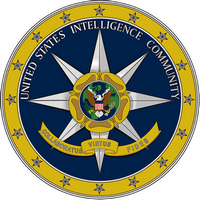It's no secret that the increasing complexity of the international system -- and in particular, its growing interconnectedness, integration, and interdependence -- is eroding the fundamental business models of an ever-growing range of industries. Nowhere is this more evident than in the information industries, such as journalism, broadcasting, publishing, music and film, among others. More than a few entities have been swept to the brink of, or in some cases over, the precipice of irrelevance. And every information industry, it seems, is in some peril.
The U.S. intelligence community's traditional model is similarly threatened by these transformations, but like so many other besieged industries, the IC is hesitant to deviate from it. In general terms, the IC's model is a secret "collection-centric" one that:
- prizes classified data, with classification often directly correlated to value and significance;
- is driven by data availability, while analytical requirements remain secondary;
- is context-minimal, with analysis staying close to the collected data and in narrow account "lanes";
- is current-oriented, since there are no collectable facts about the future;
- is warning-focused, emphasizing alarm-ringing;
- is product-centered, measuring success relative to the "finished intelligence" product provided to policymakers, rather than its utility or service.

